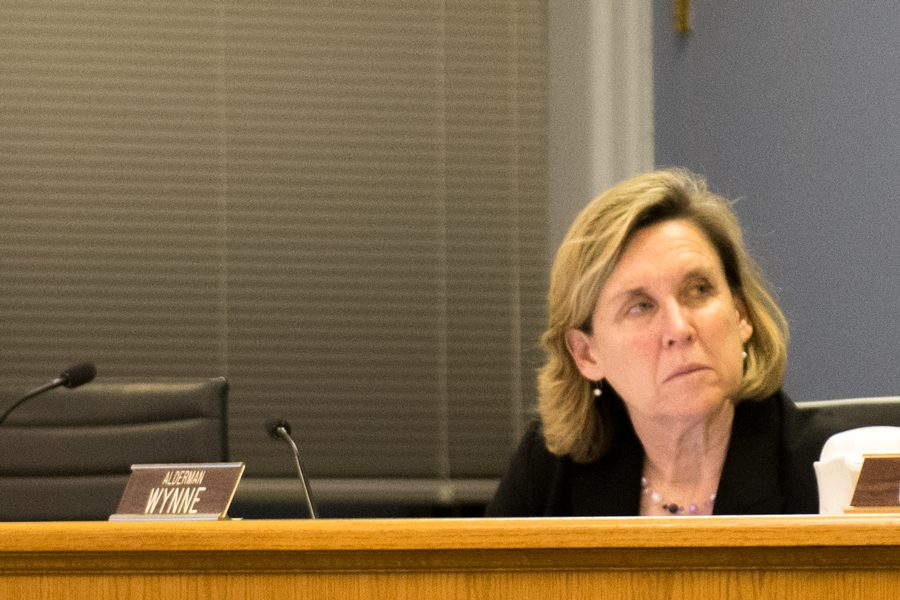City reports increased efforts towards housing affordability
Daily file photo by Jennifer Zhan
Ald. Melissa Wynne (3rd). Wynne said some of her residents expressed interest in small lot housing development
April 29, 2019
City Council filed a report on its efforts to expand affordable housing options at Monday’s special meeting, which discusses work to create new housing opportunities, increase affordability in current developments and support low-income residents.
Increasing affordable housing is a City Council goal set for the 2019-2020 year, along with infrastructure, city financing, job development, and equity and empowerment. The report is the first of four, scheduled for the end of the year’s first quarter.
The city has made multiple efforts to offer new housing opportunities, according to city documents. Aldermen approved the rental of coach houses to non-family members. The amnesty period for rental registration opened March 1 and will run through May 31.
Housing and grants division manager Sarah Flax said Monday that the rental registration was not only for coach houses, but also for accessory dwelling units like condos and single-family homes. She said the city continues to promote the amnesty period.
Flax also asked the Council for direction on small lot housing and development, as well as occupancy of attached accessory dwelling units. Currently, the Zoning Ordinance only allows the development and occupancy of detached accessory dwelling units, but the Zoning Board of Appeals has recently approved multiple detached ADUs on a case by case basis.
Flax recommended the city amend the ordinance to allow the development of all detached accessory dwelling units.
“It would take a great deal of burden off the ZBA staff,” Flax said. “It really gives a, on a small scale, additional inclusionary affordable units, but we’re being careful not to overburden property owners.”
Aldermen expressed their support for inclusionary housing ordinance bonuses for affordable attached accessory dwelling units. Flax also recommended using a site on 2122 Darrow Ave. to experiment with small lot housing. She said there were a lot of “odd-shaped areas we honestly don’t make good use of right now.”
Residents and housing developers expressed interest in small lot housing development at the last 3rd ward meeting, said Ald. Melissa Wynne (3rd).
“There was quite a bit of interest from people…I think we’ll see this coming back again,” said Wynne.
City staff has also worked to expand affordability in the current market. An amended Inclusionary Housing Ordinance was adopted by city council in October 2018 and went into effect January 1. A development located at 2111 Maple Ave. is the first project covered by the amended ordinance, and was recently submitted for zoning review, according to city documents.
In order to overcome rental barriers for low-income residents, Flax said the city made an effort to leverage external resources. Flax pointed to the city’s impending acquisition of a vacant lot at 1805 Church St., which will be used for affordable or mixed-income housing.
City staff also discussed the Landlord-Tenant services, which include an initiative to provide legal counsel to local tenants and landlords. The city approved a contract with the Metropolitan Tenants Organization and Lawyers’ Committee for Better Housing in September.
The program began October 1, and is scheduled to run for 12 months.
In the first sixth months, MTO handled 137 cases, only three of which dealt with landlords. Ald. Robin Rue Simmons (5th) urged the city to work more closely with landlords.
“We should be working harder with our independent landlords…often times it is a burden for them to really be providing affordability,” Rue Simmons said.
Email: [email protected]
Twitter: @snehadey_


